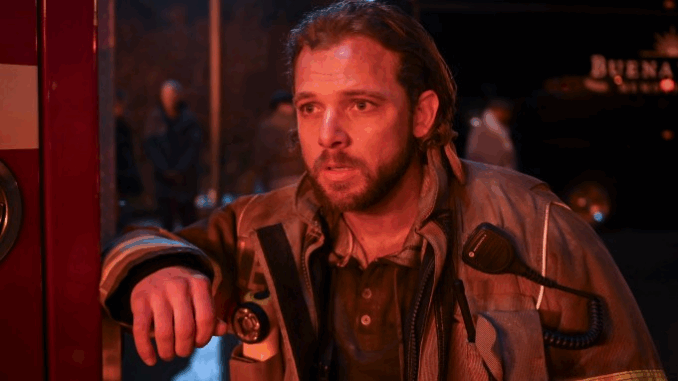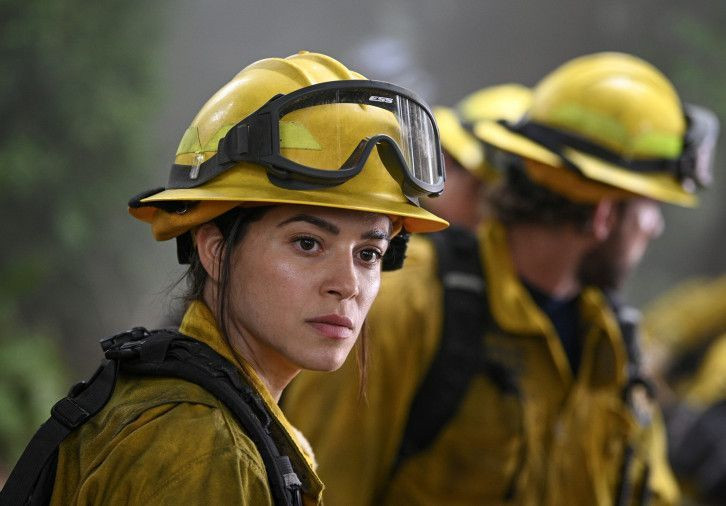
Fire Country may be built on explosions, rescues, and daring heroics—but beneath its adrenaline-fueled surface lies a far more fragile, and all too real, human story. That story is about mental health, particularly the emotional and psychological toll borne by first responders who risk their lives to save others.
Through its honest depiction of trauma, grief, addiction, and recovery, Fire Country sets itself apart. It reminds viewers that not all scars are visible, and not all battles end when the fire is out.
The Hidden Cost of Heroism
Firefighters, EMTs, and prison camp crews face unimaginable stress. In Fire Country, the constant pressure of being on call 24/7 is compounded by the brutal reality that not every life can be saved. Sometimes they arrive too late. Sometimes they watch colleagues fall.
This reality is brought into sharp relief through characters like Bode Donovan, Sharon Leone, Jake Crawford, and Manny Perez. Each character carries the weight of decisions that haunt them, of moments they replay over and over, looking for a different outcome.
The series doesn’t treat trauma as a one-time event—it shows it lingering like smoke after the blaze.
Bode’s Burden: Guilt and Redemption
As the emotional core of the series, Bode Donovan’s mental state is a central theme. His guilt over past mistakes, particularly the incident that led to his incarceration, shapes everything he does. But Fire Country goes further than many shows by exploring how guilt manifests as self-sabotage, isolation, and inner turmoil.
Bode’s desire to be seen as more than his crime is constantly at war with his belief that he doesn’t deserve forgiveness. His every act of bravery becomes both a plea for redemption and a form of penance.
This internal conflict resonates with countless real-world veterans, firefighters, and former inmates who wrestle with survivor’s guilt and the struggle for self-worth.

Sharon and Manny: Leadership with a Heavy Toll
Sharon Leone, Cal Fire division chief, represents the burden of leadership. While she exudes strength, calm, and control, the show reveals her private battles—especially as she deals with a life-threatening health condition while managing one of the most dangerous professions in the world.
Similarly, Manny Perez, the Three Rock crew supervisor, faces compounded stress: overseeing inmate firefighters, relapsing into addiction, and trying to maintain respect and order among men who are themselves on the edge.
Both characters illustrate a crucial truth: even leaders are not immune to breaking under pressure.
Their arcs subtly reinforce the stigma around mental health in positions of authority—and the difficulty of asking for help when others rely on you to stay strong.
Jake Crawford and the Ripple of Trauma
Jake Crawford’s storyline is perhaps the clearest portrait of PTSD and emotional disconnection. On paper, Jake is everything a firefighter should be: skilled, brave, composed. But inside, he’s hollowed out by grief, betrayal, and a sense of unworthiness.
His strained relationships and avoidance behavior serve as cautionary tales of what happens when trauma is buried instead of addressed. Jake’s silence speaks volumes—about the culture of stoicism that dominates firefighting and the emotional damage it causes over time.
Through Jake, Fire Country challenges toxic ideals of masculinity, showing that real strength lies in vulnerability.
Brotherhood and Breakdown
Despite the chaos and danger, the series also shows moments of profound connection between crew members. Whether it’s a silent nod after a rescue, a heart-to-heart around a campfire, or a shared memory of someone lost, these moments are the emotional glue that keeps the team going.
The bond between inmate firefighters—people who often have no one else—is especially powerful. They may be hardened by circumstance, but Fire Country shows how shared trauma can become a foundation for healing, if trust and support are present.
These relationships serve as informal therapy—raw, real, and essential.
Breaking the Stigma
Mental health in first responders is often underrepresented or mishandled in media. Fire Country takes a different path. It doesn’t glamorize breakdowns or use them for drama. It treats mental health with nuance, compassion, and accuracy.
The show also underscores the importance of intervention: therapy sessions, rehab, and emotional check-ins aren’t just plot devices—they’re lifelines. And when characters seek help, they’re not portrayed as weak. They’re portrayed as brave.
By doing so, Fire Country plays a vital role in breaking the silence around mental health, especially in male-dominated professions.
Why This Portrayal Matters
The statistics are grim. Firefighters are more likely to die by suicide than in the line of duty. Rates of PTSD, depression, and substance abuse in first responders are significantly higher than in the general population.
What Fire Country offers is representation with empathy. It gives audiences a window into the invisible struggles that real-life heroes face—and encourages open conversations about how we treat those who treat our emergencies.
In showing that courage isn’t just charging into flames—but also facing your inner demons—Fire Country lights a path forward for more honest, impactful storytelling.
